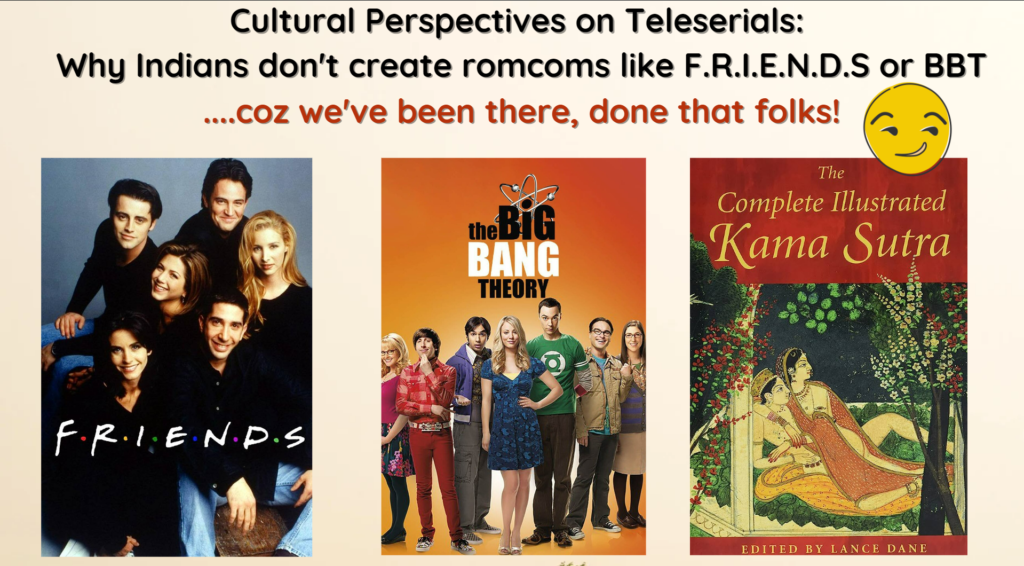Cultural Perspectives on Teleserials: Exploring Indian Values and Western Influences
Introduction
The realm of television series has transcended borders, bringing diverse cultures and lifestyles into the living rooms of millions. Shows like ‘Friends’ and ‘The Big Bang Theory’ have captured hearts worldwide with their humor and relatable characters. However, when it comes to creating similar teleserials in India, there seems to be a cultural disconnect. One might ask, why can’t Indians produce teleserials like ‘Friends’ and ‘The Big Bang Theory’? The answer may lie in a complex interplay of cultural values, societal norms, and historical contexts.
Cultural Values and Social Norms
India, a civilization with a rich history spanning thousands of years, has witnessed the evolution of cultural values and social norms that have shaped its society. The portrayal of live-in relationships and casual intimacy, as seen in ‘Friends’ and ‘The Big Bang Theory’, contrasts with traditional Indian values that emphasize chastity, loyalty, and family bonds. While these values may not be universally adhered to in modern India, they still hold a significant place in the country’s collective consciousness.
Historical Influences
To understand India’s perspective, it is crucial to acknowledge its historical context. The mention of Vatsyayana’s work on human sexual behavior in Sanskrit literature exemplifies India’s historical openness towards discussions on human relationships and intimacy. However, the societal implications of such behavior were approached differently in ancient times. The sculptures and depictions at temples like Khajuraho offer insights into the cultural attitudes towards relationships, which may not necessarily equate to modern conceptions of relationships portrayed in Western teleserials.
Social Development and Lessons from the Past
The assertion that India does not create teleserials like ‘Friends’ and ‘The Big Bang Theory’ due to a belief in concepts like chastity and loyalty reflects a societal response to historical experiences. Throughout its long history, India has witnessed the consequences of certain behaviors and their impact on social development. The emphasis on values such as chastity and loyalty may stem from a desire to avoid repeating past mistakes and to foster stable and harmonious relationships within the societal framework.
The Entertainment Industry’s Evolution
India’s entertainment industry has evolved over the years to reflect changing societal dynamics while still respecting cultural values. Contemporary Indian television serials often explore themes of relationships, family, and social issues. Although some shows may not directly mirror the themes of Western counterparts, they address issues that resonate with Indian audiences and embody the country’s unique cultural perspective.
Conclusion
The question of why India doesn’t create teleserials like ‘Friends’ and ‘The Big Bang Theory’ cannot be answered in simple terms. It is a complex interplay of cultural values, historical influences, and societal norms that have shaped India’s approach to entertainment and relationships. While India’s television industry may not produce identical teleserials, it thrives by creating content that is rooted in its own unique culture and resonates with its audience. The evolution of Indian entertainment continues to bridge the gap between cultural values and the demands of modern storytelling, providing a glimpse into the multifaceted tapestry of this ancient civilization.
